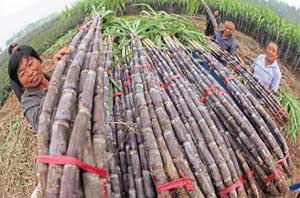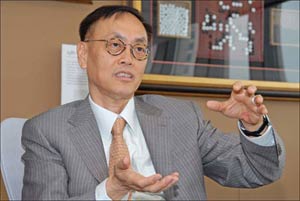Urban society coming too soon for China
Updated: 2011-10-12 07:00
By Shan Juan and Huo Yan (China Daily)
|
|||||||||
NANNING - China may not be ready for a society dominated by cities, experts warned on Tuesday, citing the country's quick urbanization.
Nearly half of China's population works and lives in urban areas, said senior researcher Zheng Zhenzhen on Tuesday.
But it's not real urbanization as most of the migrants, particularly those from the countryside, still find it hard to integrate into urban life and be treated fairly, said the expert with the Chinese Academy of Social Sciences at the China-ASEAN Forum on Population and Family Development.
Despite the nation's economic wonder realized largely by cheap and sufficient labor, "destination cities are still struggling to assure migrant workers of basic supports like affordable and decent housing, fair provision of public services in healthcare, education, old age care, and community management," said Zhang Chunsheng, a senior official of the National Population and Family Planning Commission.
According to the latest report issued by the commission, migrants lagged far behind locals in terms of quality of life, and nearly 42 percent of China's 221 million migrants felt seriously strained by high rent in cities.
A plasterer surnamed Song who left his home village in Anhui province five years ago for a better paying job in Xi'an, capital of Shaanxi province, told China Daily that the pace of rising incomes always falls behind living costs.
"I feel always like an outsider and without health insurance, I don't even dare go to the hospital when I'm sick," he said.
Gu Baochang, professor of demography at Renmin University of China, blamed the GDP-oriented urbanization in the past decades for the plight migrants are suffering today.
Despite a long span of urbanization starting in the late 1980s, "basic yet important questions like how to treat migrants in cities have yet to be answered," he said.
The scale of urbanization has kept surging but rights and interests of migrants have been largely neglected, he said.
Meanwhile, the government has yet to integrate the factor of urbanization - the social and economic impacts of which are too significant to be ignored -into country's overall development plan, he added.
Lu Jiehua, a sociology professor at Peking University, said when the government speaks about the migrant population, it mainly concerns itself with social security and stability.
"A huge gap in public service access between local urbanites and migrants made migrants seriously marginalized and posed a challenge for social stability," he explained.
Like the 2005 Paris riots mainly involving the second generation of discontented immigrants, "we are now more concerned about China's younger generation of migrant workers who were immersed with city culture but maintained a status of farmers," he said.
Tewodros Melesse, director general of the International Planned Parenthood Federation, said the migrant population played important roles in boosting the country's economy and should be treated fairly and equally.
To recognize that, the government began to issue human-centered measures and policies providing rural migrant workers access to basic public services like medical care in cities, said Cui Li, deputy chief of the National Population and Family Planning Commission.
Huang Zhaohua contributed to this story.









